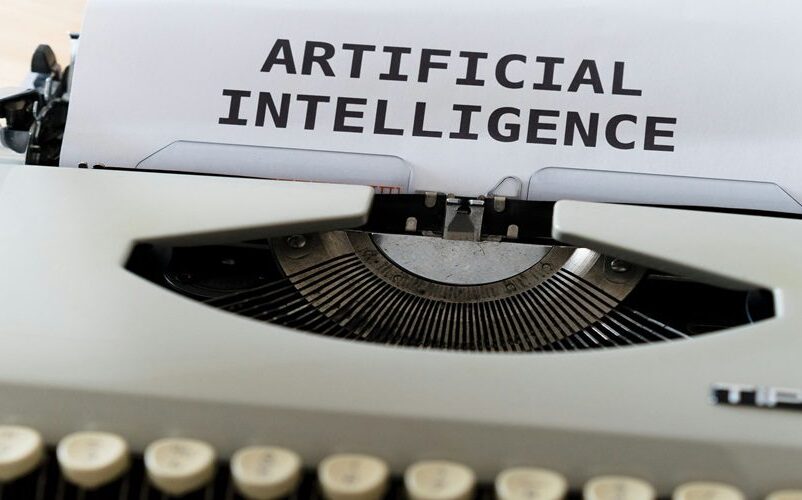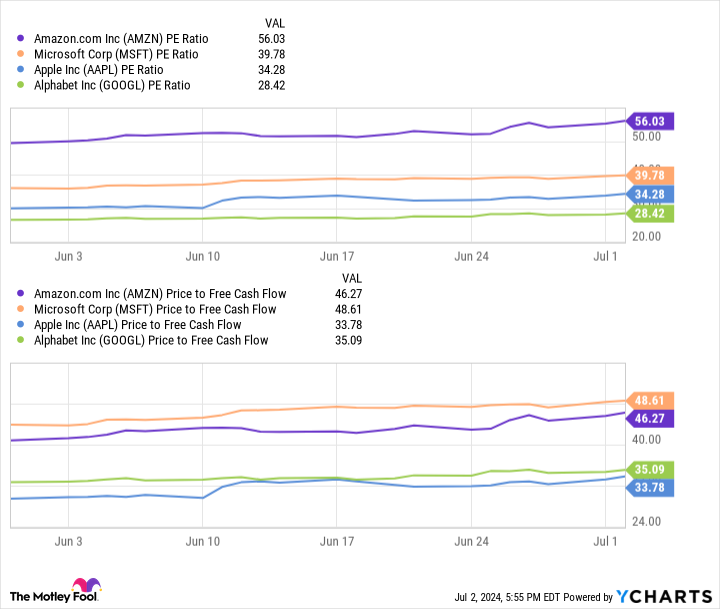
Welcome to the future! From self-driving cars to voice-activated virtual assistants, it’s becoming evident that artificial intelligence (AI) is reshaping the world as we know it. But what exactly is AI, and how does it affect our everyday lives? In this blog post, we will embark on an exhilarating journey through the realms of AI, unraveling its impact on various aspects of our daily routines. Are you ready for a mind-boggling exploration filled with cutting-edge technologies and futuristic possibilities? Let’s delve into the captivating world of AI and discover how this revolutionary force shapes our very existence.
What is Artificial Intelligence?
Artificial intelligence, or AI, is a rapidly evolving field of computer science that focuses on creating intelligent machines and systems that have the ability to simulate human thought processes. The term “artificial intelligence” was first coined in 1956 by John McCarthy, and since then, it has become increasingly prevalent in our everyday lives.
AI systems are designed to perform tasks that would typically require human intelligence and decision-making. These systems use algorithms, machine learning techniques, big data analysis, and natural language processing to learn from data, identify patterns, make predictions, and adapt to new situations without explicitly being programmed for each task.
History and Evolution of AI
The history of Artificial Intelligence (AI) can be traced back to ancient times, with tales and myths from Greek, Chinese, and Egyptian civilizations depicting the concept of artificial beings endowed with human-like intelligence. However, AI as we know it today began to take shape in the late 1950s when scientists and computer programmers started exploring ways to create intelligent machines that could perform tasks traditionally done by humans.
One of the earliest milestones in AI was the development of the Logic Theorist program by Allen Newell, Herbert Simon, and J.C. Shaw in 1956. This program was able to prove mathematical theorems automatically. It gave rise to the idea that computers could perform problem-solving tasks without human intervention.
In 1957, Frank Rosenblatt created a machine called Perceptron for pattern recognition. This device laid down the foundation for neural networks – a branch of AI that simulates how humans learn through experience.
The term “artificial intelligence” was first coined by John McCarthy at a conference at Dartmouth College in 1956. He defined it as “the science and engineering of making intelligent machines.” At this time, many believed that achieving true machine intelligence would only take a few years.
However, progress in AI research slowed down over the next two decades due to limitations in computing power and lack of funding. It wasn’t until the early 1980s when Japan invested heavily in AI research that there was renewed interest in this field.
In 1997, IBM’s Deep Blue chess-playing computer famously defeated world champion Gary Kasparov. This marked a significant achievement for AI as it showed a machine capable of defeating one of humanity’s most complex games requiring strategic thinking.
The advent of big data and advancements in computing power allowed researchers to develop more sophisticated algorithms for processing large amounts of data quickly. In 2009, Google launched its self-driving car project – an example of using AI in the real world.
Applications of AI in Everyday Life
Artificial Intelligence (AI) has become an integral part of our daily lives, and its impact can be seen in various applications across different industries. From smart home devices to mobile applications, AI has revolutionized the way we live, work and interact with technology. In this section, we will explore some of the most common applications of AI in our everyday life.
1. Virtual Personal Assistants:
The rise of virtual personal assistants like Siri, Alexa, and Google Assistant has made our lives more convenient and efficient. These AI-powered assistants can perform tasks such as setting reminders, scheduling appointments, playing music based on voice commands, and even controlling smart home devices.
2. Predictive text and autocorrect:
AI is also used in predictive text and autocorrect features on our smartphones and computers. These technologies use natural language processing to predict the next word or correct spelling mistakes based on previous usage patterns.
3. Online Shopping:
E-commerce websites have been using various forms of AI for quite some time now. Through machine learning algorithms, these platforms analyze user data to make personalized product recommendations, optimize prices for maximum sales conversion, and even provide virtual shopping assistants to enhance the overall customer experience.
4.App-based ride services:
Ride-hailing services like Uber and Lyft rely heavily on AI for their operations. The algorithms behind these apps process real-time data from traffic patterns to suggest the fastest route for a trip while optimizing prices according to rider demand.
5.Smart Home Devices:
With advancements in IoT technology, we have seen an increase in smart home devices such as thermostats, lighting systems,and security systems that are powered by AI. These devices learn from our behaviors and adjust accordingly to provide a comfortable living environment while conserving energy.
6.Healthcare:
AI is transforming the healthcare industry through its potential use in medical diagnosis,outcomes prediction,and drug discovery.AIlgorithms can analyze large amounts of data from patient records,to identify patternsand provide more accurate diagnoses.
7.Financial services:
AI is also making waves in the financial services industry, with its ability to analyze vast amounts of data and predict market trends. Chatbots powered by AI are also being used for customer service inquiries and personalized financial advice.
8.Virtual Education:
With the recent shift towards online learning, AI has a significant role to play in virtual education. Learning management systems use AI algorithms to personalize course materials based on students’ individual learning styles and progress.
Impact of AI on Different Industries
As artificial intelligence (AI) continues to evolve and advance, its impact can be seen in various industries across the world. From healthcare to agriculture, AI has revolutionized operations and processes in ways that were previously unimaginable.
1. Healthcare Industry:
The healthcare industry has embraced AI technology to improve patient care and enhance overall efficiency. AI-powered systems are being used for accurate diagnoses and identifying potential health risks at an early stage. For example, IBM’s Watson Health uses natural language processing capabilities to analyze large amounts of data from medical records, research papers, and clinical trials to provide personalized treatment plans for patients.
2. Transportation Industry:
The emergence of self-driving cars is one of the most significant impacts of AI on the transportation industry. Companies like Tesla, Uber, and Google are investing heavily in developing autonomous vehicles that use AI algorithms to navigate roads, avoid accidents, and optimize fuel consumption. Additionally, logistics companies are also leveraging AI for route planning and scheduling deliveries in real-time.
3. Education Industry:
Artificial intelligence has transformed traditional classroom teaching by providing personalized learning experiences for students. With the help of adaptive learning systems powered by AI algorithms, teachers can create customized lesson plans tailored to each student’s needs and learning pace. This ensures better retention rates among students and allows teachers to focus on individual attention.
4. Retail Industry:
E-commerce giants like Amazon have been using machine learning techniques combined with customer data analysis through their recommendation engines to personalize product suggestions based on previous purchases or browsing history. This improves customer experience while also increasing sales for retailers.
5. Banking & Finance Industry:
Banks have implemented chatbots powered by natural language processing (NLP) abilities to provide virtual assistance services around-the-clock efficiently. These chatbots answer commonly asked questions about account balances/savings/investment options while ensuring data security protocols are followed during online transactions.
6.Social Media & Entertainment Industry:
Social media platforms leverage AI algorithms to analyze user preferences and interests to deliver personalized recommendations for news, posts, and advertisements. Streaming platforms like Netflix also use AI for content recommendations based on viewing history, ratings, and reviews.
Ethical Concerns with the Use of AI
The advancement of artificial intelligence (AI) in recent years has raised numerous ethical concerns regarding its use. As AI becomes more integrated into our everyday lives, it is essential to address and understand these concerns to ensure responsible and ethical usage.
One of the main ethical concerns with AI is its potential impact on jobs and the workforce. With increased automation and AI technology taking over tasks that were previously performed by humans, there is a fear that it may lead to widespread job loss. This could have significant social and economic impacts, particularly for those in low-skilled or repetitive jobs. Moreover, as AI systems continue to become more advanced, there are questions about whether they will eventually replace highly skilled professions such as doctors or lawyers.
Another concern with the use of AI is related to algorithmic bias. This occurs when algorithms are trained using biased data sets or by incorporating human biases during their development. As a result, these algorithms can perpetuate discriminatory practices in areas such as hiring decisions or loan approvals. If left unchecked, this could have severe consequences for marginalized communities and further exacerbate existing inequalities.
Additionally, there are concerns about the transparency and accountability of AI systems. As these systems become more autonomous, it becomes challenging to understand how they make decisions or what factors they consider. This lack of transparency can make it challenging to hold companies accountable for any errors or unethical behavior caused by their AI systems.
Furthermore, the use of AI raises questions about privacy rights and data protection. With vast amounts of personal data being collected and analyzed by AI systems, there is a risk of this information being misused or falling into the wrong hands. This concern is heightened with facial recognition technology being used in public spaces without consent.
Other ethical concerns include potential misuse of autonomous weapons systems, lack of regulations surrounding AI technology development and usage, and the impact on human relationships as we increasingly interact with machines instead of people.
To address these ethical concerns, there needs to be more transparency and accountability in the development and use of AI. It is crucial for companies and governments to ensure that ethical considerations are embedded at every stage of the process – from data collection to algorithm design. There also needs to be a regulatory framework in place to monitor AI systems’ usage and mitigate potential risks.
Advancements in AI Technology
Artificial Intelligence (AI) has been making remarkable progress in recent years and is now being incorporated into various aspects of our everyday lives. From virtual assistants to self-driving cars, AI is revolutionizing the way we interact with technology. In this section, we will explore some of the latest advancements in AI technology and how they are impacting our daily routines.
One of the most significant advancements in AI technology is in natural language processing (NLP). This refers to a machine’s ability to understand and interpret human language. NLP has allowed for the development of virtual assistants such as Apple’s Siri, Amazon’s Alexa, and Google Assistant. These virtual assistants use voice recognition software combined with NLP algorithms to respond to user commands and carry out tasks. They can also learn from interactions with users, making them more efficient over time.
The integration of AI into smart homes has also become increasingly prevalent. With the help of sensors, cameras, and other connected devices, homes can now be equipped with automated systems that adjust temperature, lighting, and security based on individual preferences or changes in the environment. For example, Nest Thermostat uses machine learning algorithms to create personalized temperature schedules for homeowners by observing their behavior patterns.
Another area where AI is advancing rapidly is healthcare. Machine learning algorithms are being used to analyze vast amounts of medical data quickly and accurately diagnose diseases like cancer at an early stage. In addition, chatbots powered by AI are assisting doctors in providing patient care by answering routine questions and scheduling appointments.
In transportation, self-driving cars have been a major focus for tech companies such as Tesla and Google’s Waymo division. These vehicles use computer vision systems along with advanced decision-making capabilities powered by artificial intelligence to navigate through traffic safely.
The retail industry has also seen tremendous growth due to advancements in AI technology. E-commerce giants like Amazon are utilizing predictive analytics powered by artificial intelligence to recommend products tailored specifically for customers based on their previous purchases and browsing history.
Future Possibilities and Potential Risks
The rapid advancements in artificial intelligence (AI) have sparked both excitement and concern about its potential impact on everyday life. While the possibilities of AI seem endless, there are also potential risks that need to be carefully considered. In this section, we will delve into the future possibilities and potential risks of AI.
Future Possibilities:
1. Automation of Tasks: One of the most significant impacts of AI on everyday life is likely to be the automation of various tasks. With AI-powered machines and robots, mundane and repetitive tasks can be automated, freeing up time for humans to focus on more creative and meaningful work.
2. Improved Efficiency: With the ability to analyze vast amounts of data at a speed humans could never match, AI has the potential to greatly improve efficiency in various industries such as healthcare, transportation, and manufacturing.
3. Personalization: AI algorithms can learn from our behaviors and preferences to offer personalized experiences tailored to our needs. From recommendations on streaming platforms to customized healthcare treatments based on genetic data, personalized services powered by AI can greatly enhance daily life.
4.Better Decision Making: By collecting and analyzing massive amounts of data, AI systems can make informed decisions that are free from human biases. This technology can prove particularly beneficial in areas where decision-making is critical, such as finance or healthcare.
Potential Risks:
1.Unemployment: As machines take over tasks previously performed by humans, there is a risk that many jobs may become redundant. This could create unemployment issues if new job opportunities are not created fast enough.
2.Data Privacy Concerns: The massive amount of personal data required for AI systems’ functioning raises concerns about privacy violations and misuse of sensitive information by companies or governments.
3.Lack of Human Control: With advancements in autonomous technology, there is a fear that fully autonomous systems may lose control over their actions without human intervention leading to unintended consequences.
4.Biased Decision-Making: Since AI algorithms learn from historical data, bias in the training data can result in biased decision-making, leading to discrimination and perpetuating societal inequalities.
Conclusion
In conclusion, it is clear that artificial intelligence has already made a significant impact on our everyday lives and will continue to do so in the future. Whether we realize it or not, AI is present in many aspects of our daily routines and its influence will only grow as technology advances. While there may be concerns about job displacement and ethical implications, the benefits of AI cannot be overlooked. As we move forward, it is important for us to understand and embrace this technology responsibly to ensure its positive impact on society.






